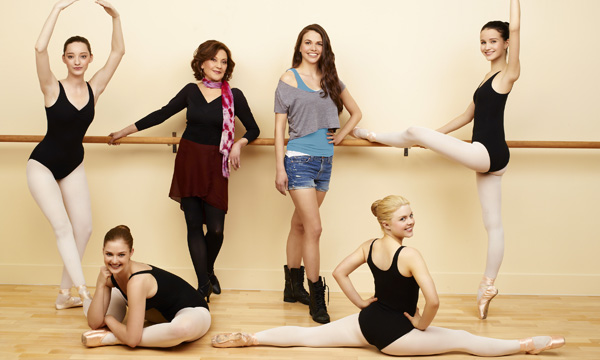By Christine Jin
Any small incident of violent crime would cause a stir in a peaceful and conservative little city like Christchurch, New Zealand, in the 1950s. One can only imagine the shock and terror delivered across town by the news of a homicide committed by two teenage girls. In the summer of 1954, Pauline Parker and Juliet Hulme were charged with murdering the former’s mother and, soon after, found guilty. Unsurprisingly, their trial, during which Pauline’s unearthed diaries served to support an unsuccessful insanity defense, garnered sensationalised press coverage.
The media’s specific and intense focus on the accused’s allegedly unhealthy friendship stoked such fear and concern that the case went down as a cautionary tale about not only juvenile delinquency, but relationships considered even vaguely homosexual. No wonder those media portrayals of the trial, together with the mass hysteria surrounding it, reinforced pre-existing anti-lesbian attitudes and a deep-seated association between lesbianism and criminality.
But 40 years later, Peter Jackson, a New Zealand native, decided that in lieu of a moralising condemnation of or tactless justification for the matricide, a nonjudgmental look would better befit his own reconstruction of events leading up to the killing. He took an intimate glimpse into the girls’ shared universe as his primary approach to the subject-matter — as the movie’s first intertitle suggests, this is their story.
Jackson insists that a trip to Pauline and Juliet’s fantasy world should be as giddy an experience as possible. After mixing in faint screams at the end of brief newsreel footage that promotes Christchurch as a tranquil urbanised haven, he shows the girls, blood-soaked and shrieking, sprinting frantically through the woods, intercut with dreamy black-and-white shots of them dashing happily across the deck of a ship. Soon in flashback, the beginnings of the friendship are presented as a series of shots brimming with elation and ecstasy.
Throughout the pair’s bonding, the camera seems to grab us by the wrist and drag us into their exalted states of mind. It chases the girls as they run around, pushes in on their enraptured faces, glides high above their heads, and circles them fast as they sing and strip down. Connecting over childhood scars and common interests in film and medieval fiction, the girls romanticise illness, blow things out of all proportion, and dream of succeeding in Hollywood. They share an idol and an enemy in Mario Lanza and Orson Welles, respectively, and collaborate on crafting stories and clay figurines to build and populate their fictitious kingdom. Jackson, accordingly, brings their inventions to life and translates their exaggerated emotions into wild compositions and camera movements. Castles become life-sized and clay monarchs animated, and the girls wholeheartedly welcome their alternative lives.
The excitement doesn’t end there — we have yet to enter the Fourth World, an absolute paradise of music and art envisioned by Juliet. With Pauline, she finally discovers the key to her version of heaven. Upon learning her parents will travel overseas for weeks without her, she plays the most miserable human being on earth, runs off to a hill surrounded by vast fields, and throws herself to the ground. Jackson’s dazzling aerial shots here bolster the scene’s melodramatic affectation, and the special effects that morph the fields into the Fourth World add to the movie’s surrealistic touches.
As this tragedy transitions to Juliet’s hospitalisation, the discovery of the imaginary heaven and their temporary separation further consolidate the girls’ bond. Seeing anyone that comes between them as a threat, the girls start erecting barriers to defend their ever-expanding universe. Interestingly enough, it seems to be their mothers who pose the greatest threat; in the end, Pauline’s mother, whom the girls regard as the mastermind behind their impending separation, falls victim to their murderous schemes.
It all seems like a variation of the typical oedipal narrative about daughters hating mothers. But aside from female authority figures such as their mothers and teachers at Girls’ High School, older males, including patriarchs, appear equally menacing. Disdained by Juliet and Pauline as foolish and disgusting, these men — a boarder, priest, psychiatrist, and father — emerge in grotesque extreme close-up during therapy, sex, or while stealthily gazing down at the sleeping girls. Except Juliet’s father, who earns her sympathy due to her hatred for her mother, all these men are cruelly slain by the figurines in the girls’ imagination.
Pauline and Juliet’s flight into fantasy is their own way of resisting the adults’ oppression. Whatever the reason, the grownups do not hesitate to declare the friendship an anomaly, not merely because it’s obsessive, but because they are suspected of having something that is a violation of the society’s morals or, by the standards of rational-minded people, an illness. Jackson, of course, does not try to rationalise the girls’ horrible deed or create a distorted representation of the crime. While relegating the details of the trial to the postscript at the end of the film, he chose to probe the girls’ minds and their shared world, rather than reiterating the images of their relationship that the media and the public, with certain bias and prejudice, had ingrained in their own imaginations. In Heavenly Creatures, the debut film for both Melanie Lynskey and Kate Winslet, Jackson also draws out indelible performances from his amply talented ingénues.
Christine Jin is a contributing editor for the magazine.





